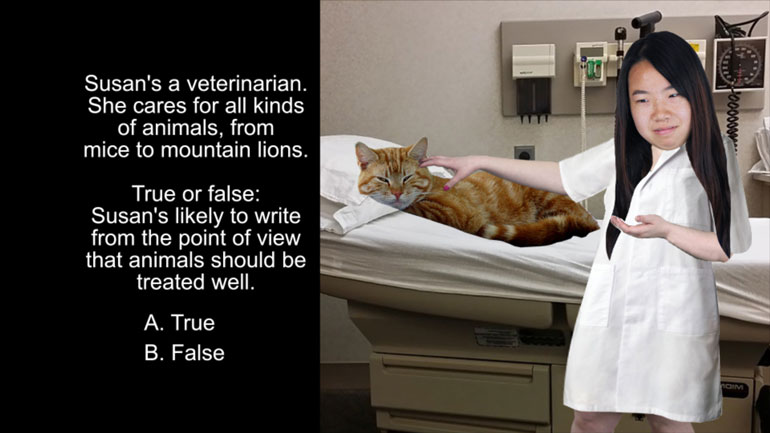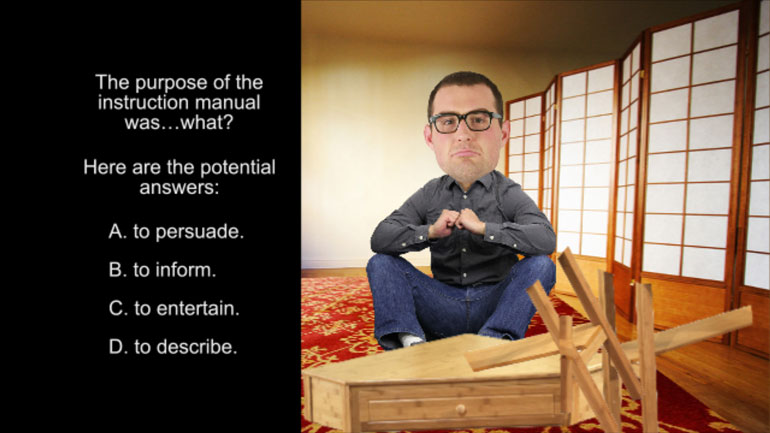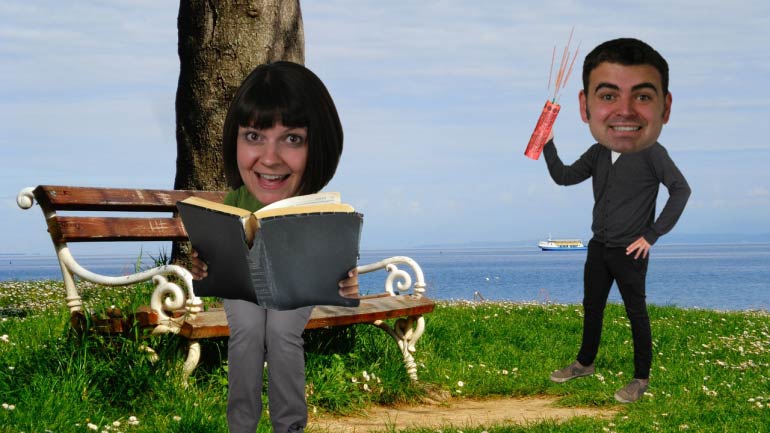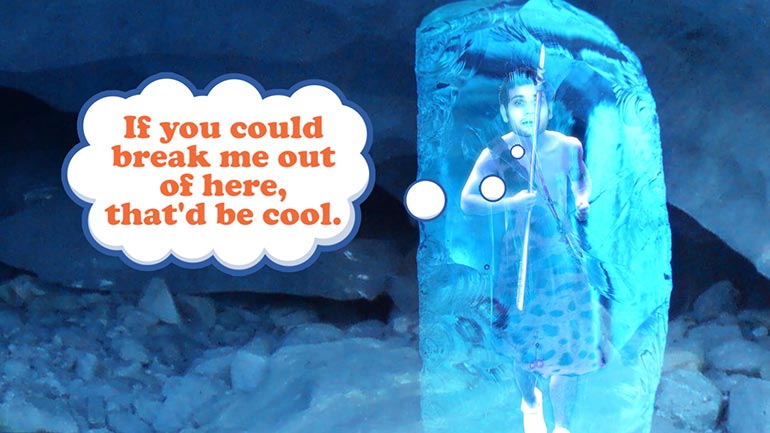ShmoopTube
Where Monty Python meets your 10th grade teacher.
Search Thousands of Shmoop Videos
ELA 3: How to Use a Dictionary 605 Views
Share It!
Description:
There will come a day when the power goes out. Your phone may even die, however briefly. Sorry, we don't mean to scare you. But you should be prepared to look words up the old-fashioned way just in case. Today's lesson is about dictionaries.
Transcript
- 00:04
[Coop and Dino singing]
- 00:14
What is a dictionary, and why is it important to learn how to use one? [Person picks up a dictionary]
- 00:17
Let’s hope we didn’t get that “I “heart” dictionaries” tattoo for nothing…
- 00:20
A dictionary is a book or electronic resource that lists the words of a language …typically [Coop discussing what a dictionary is]
- 00:25
in alphabetical order… …and provides their meaning and parts of speech.
Full Transcript
- 00:29
It also provides information about pronunciation, origin, and usage of a word.
- 00:33
About the only thing it doesn’t tell you is what the weather’s like outside. [Man reading dictionary and walks away]]
- 00:37
So…sorry.
- 00:39
You’ll have to pop open a window.
- 00:40
Using a dictionary helps us learn the meanings of new and unfamiliar words. [Baby sleeping in a crib]
- 00:45
So that they can become, uh…old and familiar.
- 00:47
First, we find the word we want to look up.
- 00:50
To locate it, we’ll need to look at the first letter of the word. [School bus arrives at school]
- 00:53
For example, the word “school.”
- 00:55
School starts with S, so in our dictionary, we’re going to go to the section of the
- 00:58
dictionary that starts with S. It’s helpful that everything is in alphabetical order.
- 01:02
Because if “S” was hidden between “C” and “Q,” we could be here all day.
- 01:07
Once we’ve found S, we’re going to look at the second letter of the word “school”,
- 01:10
which is C. [Arrow points to letter C]
- 01:11
There are guide words at the top of each page of the dictionary.
- 01:14
These guide words will help us find out if our word is on the page.
- 01:18
The guide words will start with “S-A” and go all the way through the end of the
- 01:21
“S” words.
- 01:23
We need to find the page that includes “SC” words. [Pair of scissors appear]
- 01:25
Like “Scallion,” “Scissors” and “Scatalogical.”
- 01:28
Once we’re there, we scan down the page until we find the word “school.”
- 01:32
Here, the dictionary will tell us exactly what the word means. [Definition of school highlighted]
- 01:34
If it has more than one meaning, it will tell you the most common one first.
- 01:38
It will also tell us how to pronounce the word, how to capitalize it if it's a proper
- 01:41
noun, what part of speech it is and so on.
- 01:44
Now that we know how to use a dictionary, we can look up any word we want. [Man walks towards a dictionary]
- 01:48
But…you probably already knew how to use one.
- 01:50
After all, your picture is in there.
- 01:52
Right next to the word “gullible.”
- 01:54
Wait for it…
- 01:55
Gotcha! [Man reading dictionary]
Up Next
ELA Drills, Beginner: Point of View. Is the statement in the video true or false?
Related Videos
ELA Drills, Beginner: Textual Analysis 1. The purpose of the instruction manual was...what?
ELA Drills, Beginner: Point of View 3. Which sentence in the passage best shows the narrator's point of view on the topic of Chelsea Simpson?
We wanted to make a video about sedentary rocks, but we couldn't get lazy uncle Rocky off the couch. Oh well. We'll teach you about sedimentary roc...
Today we're bringing you the opposite of Jurassic Park—how living things become fossils. Okay okay, it might not be quite as fun...but hey, at le...




